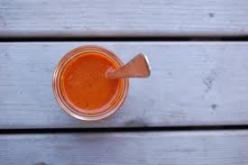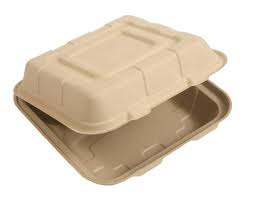This is a bit tricky to write. But for many of us, it’s hard to speak up for ourselves. We are good at protecting our children, defending our animals, supporting the family. But when it comes time to speak up for ourselves, we fall silent.
There are many times we don’t stand up for ourselves–to carve out time for creativity, to speak up to ask for what we need, and to take a stand in a wobbly family situation. After speaking with my coaching clients, I have volumes of examples of how we turn over control to others.
 This is about something much simpler–speaking up about the food we eat. A few days ago, I posted a comment on Facebook about not wanting to eat sugar anymore. Or sugar substitutes. I’m redefining my relationship with food, and while the decision is hard, I need to do it.
This is about something much simpler–speaking up about the food we eat. A few days ago, I posted a comment on Facebook about not wanting to eat sugar anymore. Or sugar substitutes. I’m redefining my relationship with food, and while the decision is hard, I need to do it.
Most of the comments I got on Facebook were from the people I call “fixers,”–those who give advice without being asked to give any. And my email box filled up with them, too. “Drink a tablespoon of cider vinegar twice a day and you will lose weight,” one person said. I had said nothing about losing weight. “It’s not the sugar,” another person wrote, “it’s gluten. Stay away from it.” I don’t have a sensitivity to gluten, indeed, I love my carbs. Perhaps too much so. So that’s not helpful advice.
 The instructions went on and on, mostly from women “fixers”–people who give unasked for and unwanted advice. Some asked if I were alcoholic (no, although I no longer drink–because alcohol converts to sugar), others asked if I were an addict (Sugar? Yes. Drugs? No). I was told to go to Overeaters Anonymous, to speak to a bariatric surgeon, to fast two days a week, to eat a Paleo Diet, to become vegan, to eat a raw diet. I received stories of how much weight people had lost. Not a single one of these people knew any details about my decisions or held a medical degree, but they felt perfectly comfortable giving me advice i had not asked for.
The instructions went on and on, mostly from women “fixers”–people who give unasked for and unwanted advice. Some asked if I were alcoholic (no, although I no longer drink–because alcohol converts to sugar), others asked if I were an addict (Sugar? Yes. Drugs? No). I was told to go to Overeaters Anonymous, to speak to a bariatric surgeon, to fast two days a week, to eat a Paleo Diet, to become vegan, to eat a raw diet. I received stories of how much weight people had lost. Not a single one of these people knew any details about my decisions or held a medical degree, but they felt perfectly comfortable giving me advice i had not asked for.
I didn’t respond to any of them, because fixers make terrible pen pals. They just want to fix you in ways they feel comfortable with.
What made my eyebrows go up were the emails that told me to lie about why I couldn’t eat sugar–because amping up your desire to change to a medical emergency makes your struggle more believable and worthy of attention. And people will not go along with your desire to change unless you persuade them that you are sick.
 I was surprised. OK, I was shocked. Until that moment, I thought that my desire to change was reason enough to not eat sugar. But it is not. The first conflict started when I turned down dessert in a restaurant. My lunch partner frowned and said, “You always eat dessert. What’s wrong?”
I was surprised. OK, I was shocked. Until that moment, I thought that my desire to change was reason enough to not eat sugar. But it is not. The first conflict started when I turned down dessert in a restaurant. My lunch partner frowned and said, “You always eat dessert. What’s wrong?”
“Nothing is wrong. I am re-defining my relationship with sugar, and I am not eating dessert anymore,” I replied. This is actually all anyone needs to know. I do not need to cite my diabetic parents (one of whom died from complications of diabetes), my weight, my energy level. In a world where privacy is suspect, I was expected to not just explain my decision, but also explain it to a friend’s satisfaction, or have it rejected.
“If you don’t eat dessert, I can’t,” she said, pouting prettily.
“Of course you can,” I said, “I don’t mind and that is your decision.”
“No, I can’t eat all by myself. Let’s split a dessert,” she suggested
“It sounds yummy, but I’m not good with half a dessert. I’ll want more. I’ll eat yours,” I smiled, trying humor.
“OK, than we’ll each order one!” she crowed, having “won” the conversation. Before I could protest, she ordered two desserts. When mine was put in front of me, my mouth watered. I really wanted to eat it. I do love dessert. But I knew that if I ate it, the battle would start all over again.
In fact, as I stared at the dessert, I felt betrayed. Why do I have to eat dessert to  please the person across the table? I thought of pouring hot sauce on it to remove the temptation, but that would not be “nice” on my part. I wondered if I would have to eat the dessert for friendship’s sake, in order not to make my lunch companion feel bad about herself. This was getting very complex quickly.
please the person across the table? I thought of pouring hot sauce on it to remove the temptation, but that would not be “nice” on my part. I wondered if I would have to eat the dessert for friendship’s sake, in order not to make my lunch companion feel bad about herself. This was getting very complex quickly.
In the end, I said I was not that hungry and took the dessert in a to-go box. And paid for it, despite the fact I had not wanted it.
 And that’s the kind of speaking up I mean. I’ve repeated variations of this scene over and over since October 3, when I ate my last gratuitous carb. I should not have to explain or defend my decisions. I should not have to answer questions about my weight, perceived addictions, or goals. My decisions are mine and I have good reasons. I don’t want to argue diets and green smoothies, or the evils of gluten, which I have nothing against and which does not upset my intestinal tract at all.
And that’s the kind of speaking up I mean. I’ve repeated variations of this scene over and over since October 3, when I ate my last gratuitous carb. I should not have to explain or defend my decisions. I should not have to answer questions about my weight, perceived addictions, or goals. My decisions are mine and I have good reasons. I don’t want to argue diets and green smoothies, or the evils of gluten, which I have nothing against and which does not upset my intestinal tract at all.
But sugar alcohols do. And I don’t need to be told that Stevia is “natural” (so is poison ivy and curare, neither of which I want to eat), or agave syrup. One more time, eating sweet things makes me think I am hungry, makes me crave sugar, and I am redefining my relationship with food. That’s it. Other than that, instead of diet advice, a bit of empathy would be welcome. But empathy is hard to come by. Because, as a stranger in the gym told me, “being overweight was a choice you made, so don’t expect anyone to feel sorry for you.” That’s pretty harsh, as a lot of overweight is not one choice, but many made while trying to please others before yourself. (To say nothing of hormonal or genetic reasons).
Most of all, I am disturbed that people who do have allergies to food, real allergies, are being diminished and made suspect by those who have control issues and need to pretend to be sick to have their way.
It’s really hard to speak up for yourself when the reply is based on shame, guilt, or reproach. I’ve been asked how much weight I’ve lost (if I give a reply, the other person will immediately tell me she has lost more by doing it her way), and told I should keep a food diary, weigh my food, weigh myself every day, once a week or not at all.
Oh, yeah, and if you go to the gym, you’ll gain weight, because muscles weigh more than fat. I didn’t ask. All I want is respect for my dietary decisions. I don’t need your approval for my decision, or your agreement, just respect. Because standing up for myself is a worthy action.
––Quinn McDonald is working on a book about the inner critic, who seems to have become ventriloquists on October 3. She knows that several people who are fixers will leave comments. And she won’t answer them. Can’t.